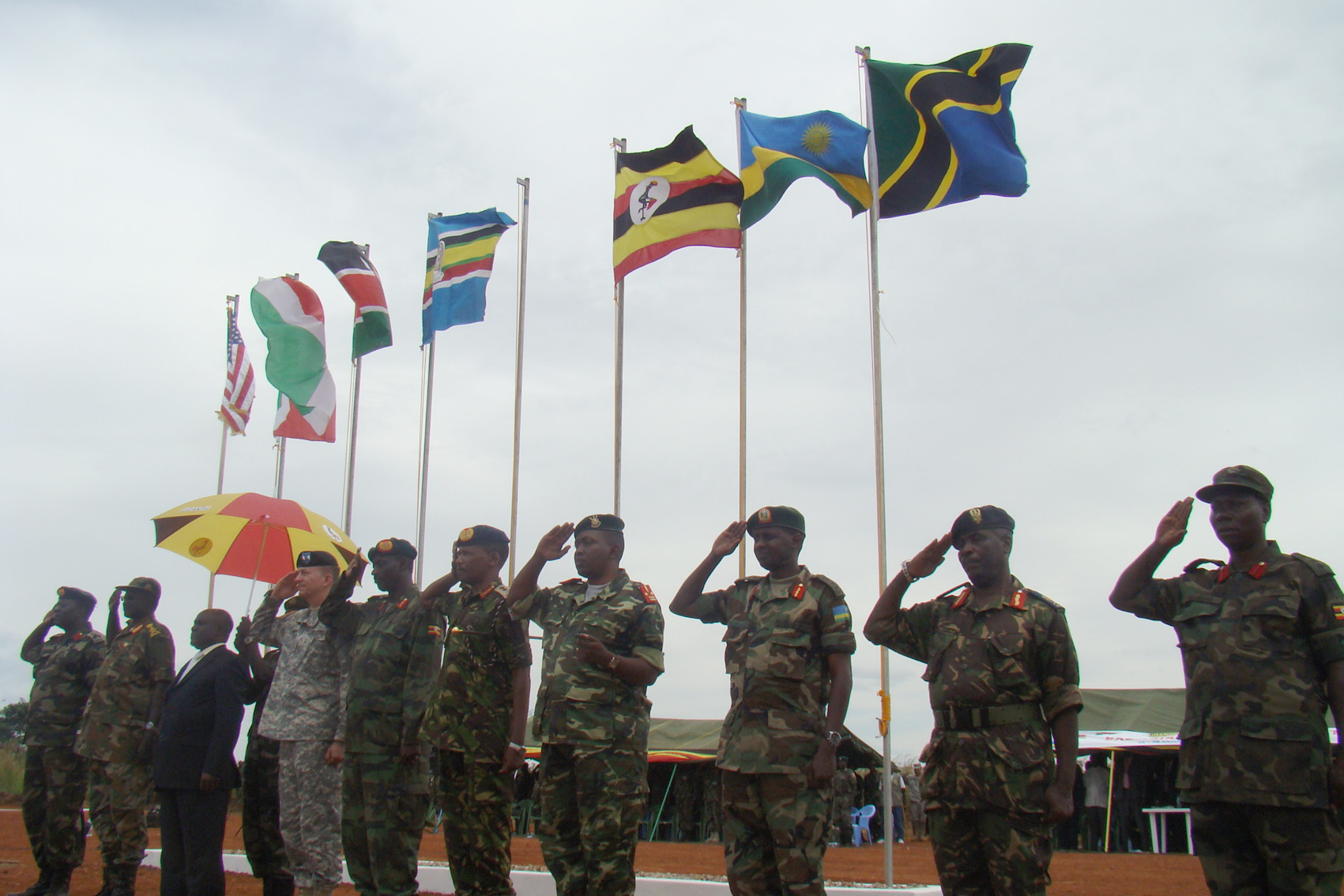"Persons in uniform are an important part of the overall AIDS response in these countries; they can be critical agents of change in that they provide an opportunity to alter wider social norms and often pilot innovative responses to HIV," Nertila Tavanxhi, the UNAIDS representative at the workshop, told IRIN/PlusNews. "In many countries, the army has been at the forefront of the response to HIV."
In Rwanda, the military has played a pioneering role in extending the relatively new practice of male circumcision as an HIV risk-reduction strategy.
"Given the role they play in our society – ensuring security – there are parts of the population that look to them as examples," said Anita Asiimwe, executive secretary of the Rwandan National AIDS Commission, CNLS.
The three-day workshop brought together delegates from Burundi, Kenya, Rwanda, Tanzania and Uganda and their partners to review HIV trends within their armed forces.
Daniel Nyamwasa, Rwanda's Assistant Commissioner of Police and one of the coordinators, said it was a step towards "a common HIV/AIDS policy and strategy in the armed forces and the police in East Africa".
Integration challenges
The East African Community is aiming for greater regional integration and harmonization of responses in the region to reduce HIV incidence and impact; for instance, the Ugandan People’s Defence Forces (UPDF) has been instrumental in supporting the Southern Sudan People's Liberation Army in developing its HIV programme.
| More on the military: | |
As well as having a strong role in managing the epidemic, armed forces have been identified as a high-risk group - most of them are sexually active males under 25, spend long periods away from their families and may be deployed to high prevalence settings. Their mobility also makes it harder to run HIV programmes for them.
"We are dealing with both fluid populations and fluid geographic coverage, which makes the response much trickier," said Kusasira.
Measures used by regional armies to counter these difficulties include mobile counselling and testing centres, task shifting to allow dispensing of life-prolonging antiretroviral drugs at post, ongoing behaviour change communication and male circumcision.
UN delegates attending the workshop were keen to reiterate the UN stance that HIV tests should not be required or used to exclude new recruits. They noted that infection alone did not signify an inability to perform duties, that confidentiality of test results was critical to the effectiveness of HIV programmes and that exclusion due to HIV status encouraged stigma and infringed on individuals’ rights.
HIV screening
However, regional armies - many of which exclude HIV-positive people from recruitment - defended their policies.
While recruitment of HIV-positive soldiers remains controversial, the workshop reached a consensus that nobody found HIV-positive during employment be discharged, that testing be accompanied by adequate counselling and that all persons found to be HIV-positive receive care and treatment.
Participants also agreed to set up task forces to examine the development of an HIV/AIDS workplace policy for the East African armies, and while HIV policies must continue to be tailored to national conditions, it was agreed that the role of regional collaboration be to establish minimum standards for the regional response to the pandemic.
rj/kr/mw
This article was produced by IRIN News while it was part of the United Nations Office for the Coordination of Humanitarian Affairs. Please send queries on copyright or liability to the UN. For more information: https://shop.un.org/rights-permissions
